
The discovery of the bee space by Revd LL Langstroth was the turning point in the development of bee hives and of beekeeping management practices. It enabled beekeepers to look inside their hives easily and observe the behaviour of their bees. It also opened up the possibility of colony management, for instance to look for disease or prevent swarming.
THE WOODBURY HIVE
Thomas White Woodbury was the first to develop a movable frame hive in the UK around 1860. Naturally, it was based on Langstroth's ideas. Ten hanging frames were suspended in a frame at the top of the hive, held apart by suitably spaced notches. There was a 9.5 mm gap between the bottom bars and the floor. In order that bees could be observed without disturbance, Woodbury placed small glass windows in the sides of the hive.
Living in the UK, Woodbury was conscious of the British weather and a later development was to make the hive out of woven straw panels for winter insulation. The next modification was to make the sides out of double-glazed panels and to use a glass crown board. Beekeepers could then observe their colonies year-round.
CHARLES DADANT - A LARGE HIVE
Over in the USA, Charles Dadant was experimenting eagerly with hives both small and large. A Frenchman who moved to Illinois in 1863, he was one of many beekeepers coming up with their own hive design and in fact over 500 patents for hives were issued in the USA over the next 20 years.
This story is from the April 2023 edition of The Country Smallholder.
Start your 7-day Magzter GOLD free trial to access thousands of curated premium stories, and 9,000+ magazines and newspapers.
Already a subscriber ? Sign In
This story is from the April 2023 edition of The Country Smallholder.
Start your 7-day Magzter GOLD free trial to access thousands of curated premium stories, and 9,000+ magazines and newspapers.
Already a subscriber? Sign In
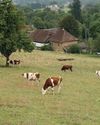
How to Buy a Smallholding in France- Long-time smallholder Lorraine Turnbull looks at the practicalities of moving to rural France
Aspiring smallholders are continually thwarted by the prices of smallholdings and property with land located within the UK. Even the humblest croft in Scotland comes with a substantial price tag and conditions which would make even an adventurous wannabee consider carefully. But all is not lost. For those willing to take the adventure of a lifetime, there is always Europe, and one of the most popular places is France.

Meet the Bournemouth goats and their supporters
These capricious animals are hard workers preserving the natural habitat
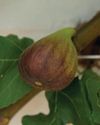
Still warm enough to sit outside with a Pizza
Henrietta Balcon uses fresh figs to create an unusual dish at Harvest time
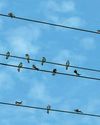
Goodbye to the birds of spring and summer
If you look and listen you might be able to see them preparing to leave says The RSPB
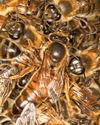
Get ready for the colder weather in the warmth of late summer
Claire Waring advises on doing the best to make sure your colonies survive until next spring
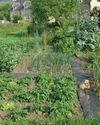
Preparing the Veg Patch for Winter
Lee Senior says, a well-run plot can excitingly continue to produce good quality, tasty, fresh food for much of winter
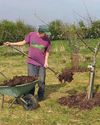
Time to prepare to plant your orchard
Wade Muggleton, smallholder and author of The Orchard Book, shares his practical experience so you can create your own fruit collection
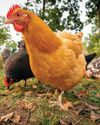
Choosing feed for the autumn
As autumn approaches, Joanna Palmer, nutritionist at the Smallholder Range, offers advice on choosing the right feed to support your adult birds through their annual moult and ensure your young birds grow and finish well at this time of the year.
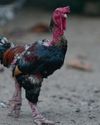
Vet advice from an experienced poultry vet
Reflecting on how much the humble hen has helped people world wide plus advice on stopping the scourge of red mite
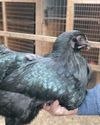
Give your hens some support
Paul Donovan looks at the right and wrong ways of handling birds